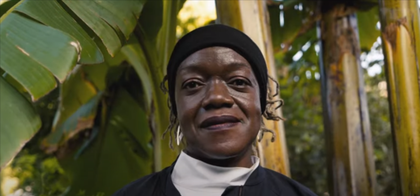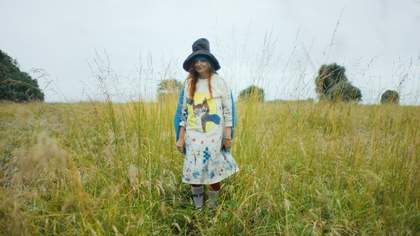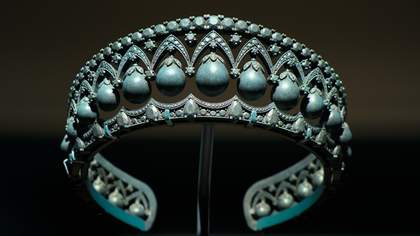Jasleen: Glasgow, ok. I mean Glasgow is where I grew up. It's also the place that my forefathers, foremothers decided to live after migrating from India. Whenever I go back there, it feels like I feel their presence
My dad worked in hardware shops and in cash and carries and so these were the worlds that I spent a lot of time in growing up and that I think so fundamentally influence how I make work, how I make art.
I have an image bank of things I like to surround myself with in the studio, but actually things kind of come to me at times when I'm not in the studio. There's so many materials that I see in these places that I also have photos of in my studio. Something about as well, the sensations of being in these spaces and what kind of sensation I want to create in the gallery.
The sky was a really late night conversation with my mum about her going to the local park for some time to escape from care duties and she'd lie on the grass and look up at the sky and she was speaking to me about a desire for freedom. It was immediately when speaking to her that I knew that that's what would occupy the space in the show.
From a young age knowing that you could make stuff being surrounded by tools and being surrounded by produced stuff, it's very obvious why I think through objects. Something else that comes up from me actually as an adult coming back into these spaces is the labour that is present. And I guess I grew up knowing that some of my ancestry was in farming and working the land and knowing how to work the land. I think I thought about that when I was studying jewelry at art school. Somewhere ancestrally my body knows how to use hands and knows how to like deal with material.
There's this particular theory that I grew up with from the Sikh tradition which talks about Miri Piri which is this balance of the political and the spiritual. I'm really interested in that duality and I've become quite obsessed with this particular point in my lineage where devotional practices were done across religious lines. That was happening for hundreds of years. But through the violence of borders, the violence of colonialism, the violence of empire so much of this stuff it has been impacted. And I'm obsessed with it because it tells me that there's a different way to live together.
What happens if I let go of this identity marker? What happens if I let go of this naming? What happens to it all?
Jasleen’s Child: What do we do with this cassette?
Jasleen: These are Grandad's babe. Granny and Grandad's. They used to listen to them. This one's some Keertan.
Jasleen’s Child: This is Keertan as well?
Jasleen: Look, it's all the same person. Where is the play button? That's a CD. There's no play
Jasleen’s Child: Play
Jasleen: One sec
Jasleen’s Child: Play, just try every button.
Jasleen: Hold on, hold on, hold on
This is where my granny and grandad lived, my gran is still here with my mum. There's just so much religious ephemera everywhere, like, everywhere. It's just decades of collecting photos and calendars and religious cassettes and videos
Who's doing the writing of history? Who's doing the retelling of it? Which things get remembered and which things do not? I think I'm drawn to things that are hidden, like the intangible bits of history.
There is this beautiful quote by a jazz musician called, Asher Gamedze he sees tradition as people grappling with their present. I just love what that offers, like a kind of freedom to tell the story differently. There's bits of history that aren't mass produced and there's bits of my history that isn't printed and on the walls of our houses they tell me a different kind of version of my lineage or my ancestry that is more plural.
My singing practice today, I'm trying to salvage the compositions and the songs that come from that more plural form of devotional worship where Sikhs and Muslim rabbis would play and compose and sing devotional music together.
That time when things were more plural that gives me a sense of hope for how to live now.
Within her work, Jasleen Kaur makes installations by gathering and remaking objects from everyday life to renegotiate tradition and agreed myths, exploring cultural memory and political belonging. Kaur questions how the narratives we inherit circulate in discreet ways and, in turn, shape us. While family and community are present in Kaur’s work, she is most interested in how these intimacies meet wider sociopolitical structures.
In this film Kaur reflects on her upbringing in Glasgow, where growing up in family-run hardware stores and cash and carries shaped her approach to thinking through objects and materials. She also examines histories impacted by colonialism, asking, ‘Who's doing the writing of history? Who's doing the retelling of it? Which things get remembered and which things do not?’
Jasleen Kaur is nominated for the 2024 Turner Prize, hosted by Tate Britain. The winner will be announced on 3 December 2024.



